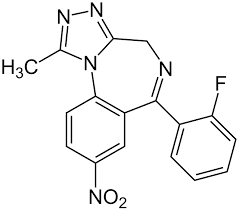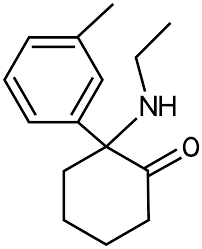What is JWH-210
JWH-210, also known as (4-ethylnaphthalen-1-yl-(1-pentylindol-3-yl)methanone), is a synthetic compound that belongs to the class of synthetic cannabinoids. It was first synthesized by John W. Huffman in the early 2000s as part of his research on the endocannabinoid system.
Chemical Structure:
This product has a complex chemical structure, consisting of a naphthalene ring fused with an indole ring. It also contains a ketone group and a pentyl chain attached to the indole ring. This unique structure allows this product to interact with the cannabinoid receptors in the human body.
Exploring the Effects and Uses of JWH-210
JWH-210 is a synthetic cannabinoid that acts as a potent agonist for the cannabinoid receptors in the brain. It is known to produce effects similar to those of natural cannabinoids found in cannabis. Key features of JWH-210 include:
- Cannabinoid Effects: This product interacts with the cannabinoid receptors, producing a range of effects such as relaxation, euphoria, and altered perception.
- Chemical Composition: JWH-210 is a synthetic compound designed to mimic the effects of natural cannabinoids. It is a member of the JWH family of synthetic cannabinoids.
- Potency: JWH-210 is known for its high potency, meaning that even small doses can produce significant effects. It is important to exercise caution and accurately measure doses when working with this compound.
- Duration of Effects: The effects of this product can vary in duration, typically lasting for a few hours. However, individual experiences may differ.
- Pharmacology and Effects:
It acts as a potent agonist of the cannabinoid receptors CB1 and CB2, which are primarily found in the central nervous system and immune cells, respectively. By binding to these receptors, JWH-210 produces a range of effects similar to those of natural cannabinoids like THC.The effects of JWH-210 can vary depending on the dosage and individual tolerance. Common reported effects include relaxation, euphoria, altered perception of time, increased sociability, and heightened sensory perception. However, it’s important to note that synthetic cannabinoids like JWH-210 can also have unpredictable and potentially harmful effects, including anxiety, paranoia, hallucinations, and even acute toxicity.
Dosage Guidelines and Safety Precautions
When working with potent compounds like JWH 210, it is crucial to follow dosage guidelines and prioritize safety. Consider the following:
- Accurate Dosing: It is recommended to start with low doses of JWH-210 and gradually increase if needed. This approach allows for better understanding and management of the compound’s effects.
- Safety Precautions: Responsible use includes obtaining the compound from reputable suppliers, accurately measuring doses, and creating a safe environment for the experience. It is important to be aware of potential side effects and interactions with other substances.
- Legal Status: The legal status of synthetic cannabinoids like JWH-210 may vary depending on your jurisdiction. It is essential to research and comply with local laws and regulations before acquiring or using this compound.
Potential Uses
JWH-210 has been primarily used for research purposes and is not intended for human consumption. Researchers have explored its effects and potential therapeutic applications, including:
- Scientific Research: It has been utilized in scientific studies to better understand the endocannabinoid system and cannabinoid receptor interactions.
- Pharmacological Studies: The compound has also been examined for its potential use in developing medications that target the endocannabinoid system.
- Forensic Analysis: This product and other synthetic cannabinoids have been the subject of forensic analysis to aid in identifying and detecting their presence in various samples.
Health Risks and Safety:
The use of synthetic cannabinoids, including JWH 210, carries significant health risks. These substances are often sold as “legal highs” or “research chemicals,” but their safety profiles are not well understood. Synthetic cannabinoids can have a higher potency and different effects compared to natural cannabinoids, making them more unpredictable and potentially dangerous.
Reports of adverse effects associated with JWH 210 use include cardiovascular problems, respiratory issues, kidney damage, and psychological disturbances. Long-term use of synthetic cannabinoids may also lead to dependence and withdrawal symptoms.
At Chems Connect, we prioritize customer satisfaction, excellent service, and prompt worldwide delivery. We are committed to offering our customers the highest standards of quality and professionalism.
Discover new possibilities in cannabinoid research with JWH-210. Place your order today and join the community of researchers at the forefront of groundbreaking discoveries.























Reviews
There are no reviews yet.